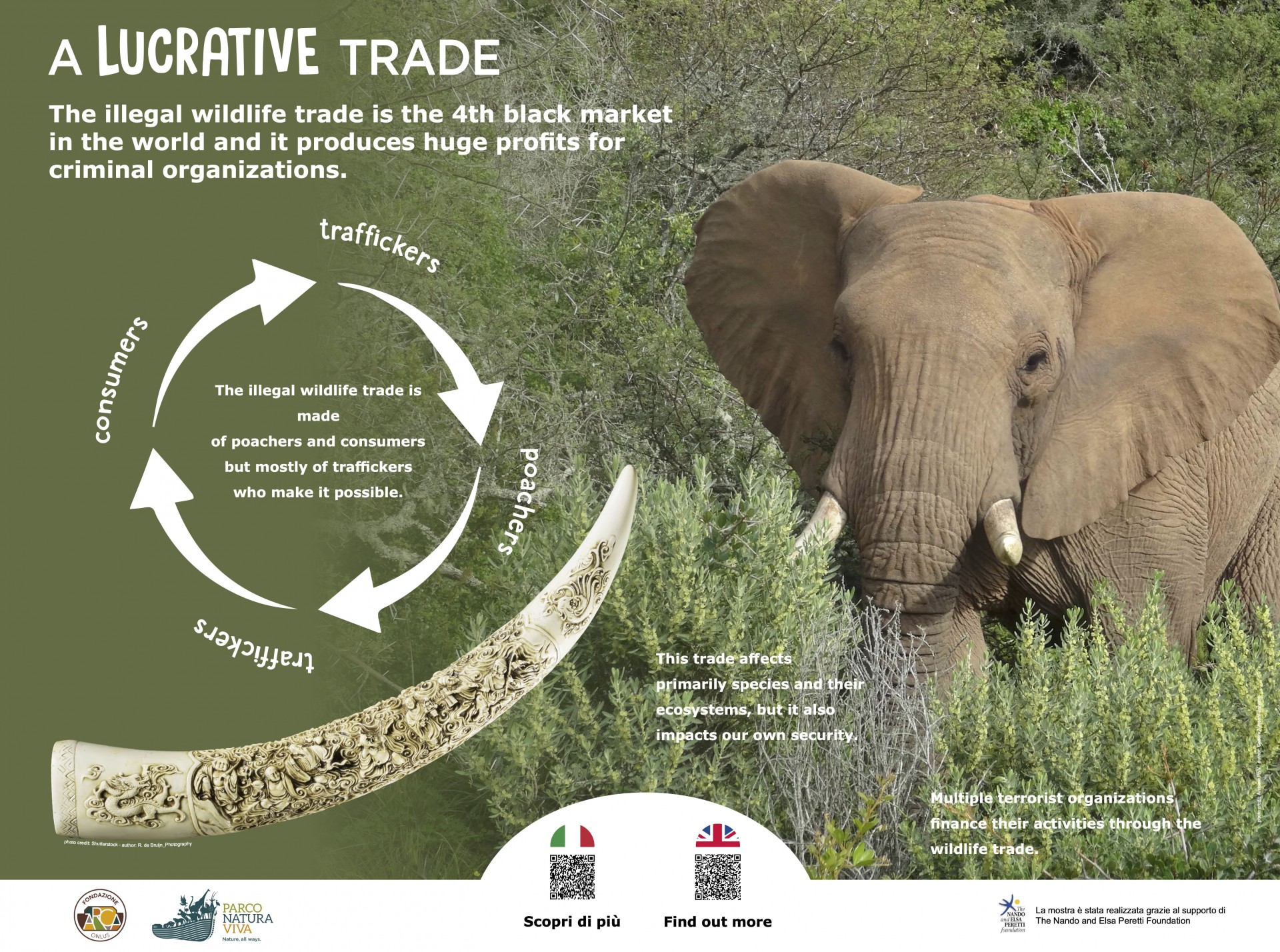
Behind the exploitation of Nature lies the illegal trade of wildlife, animal parts and timber, and illegal fishing. This trade i the fourth largest criminal activity in the world, and it impacts our own security too.
Yet, when we think of the illegal wildlife trade we rarely think of the traffick itself. Organizations around the world who care for Nature focus thei activity on poachers and cosumers. However, those who pull the strings of the illegal trade, the traffickers, remain in the shade and keep acting undisturbed.
The UN estimates that the illegal wildlife trade in 2016 generated a turnover between 7 and 23 billion dollars.
The illegal trade affects mostly elephants, rhinos, corals, tigers and apes.
- The illegal trade in elephant ivory has doubled since 2007, and tripled compared to 1998.
- between 2007 and 2014 rhino poaching has increased by 9000% in South Africa, threatening the survival of the species.
- the trade in elephant ivory and rhino horn is estimated to have generated profits of 400 and 230 millions respectively between 2016 and 2018.
Abbiamo contattato il dott.Andrea Crosta, co-fondatore e direttore di Earth League International, un’organizzazione no profit che si occupa di analizzare la situazione e portare davanti alla legge i “middle men” del traffico illegale, che spesso non vengono intercettati, o peggio ignorati, dai governi locali. Nel video il dott.Crosta ci spiega come questo commercio, che sembrerebbe interessare solo a conservazionisti e amanti della natura, debba invece preoccupare tutti noi.
We got in touch with Andrea Crosta, co-founder and executive director of
Earth League International, a no profit organization focused on helping local authorities securing the "middle men" of the illegal wildlife trade to justice.
In this video Andrea tells us how this trade, which may seem only relevant to conservationist and nature lovers, is indeed relevant to all of us.
A.R.C.A. Foundation supports the project conducted by
Earth League International (ELI) where they conduct investigations to fight the illegal trade in jaguar parts in Bolivia.
If you wish to know more about this, visit the page regarding the
traffic of big cats.

